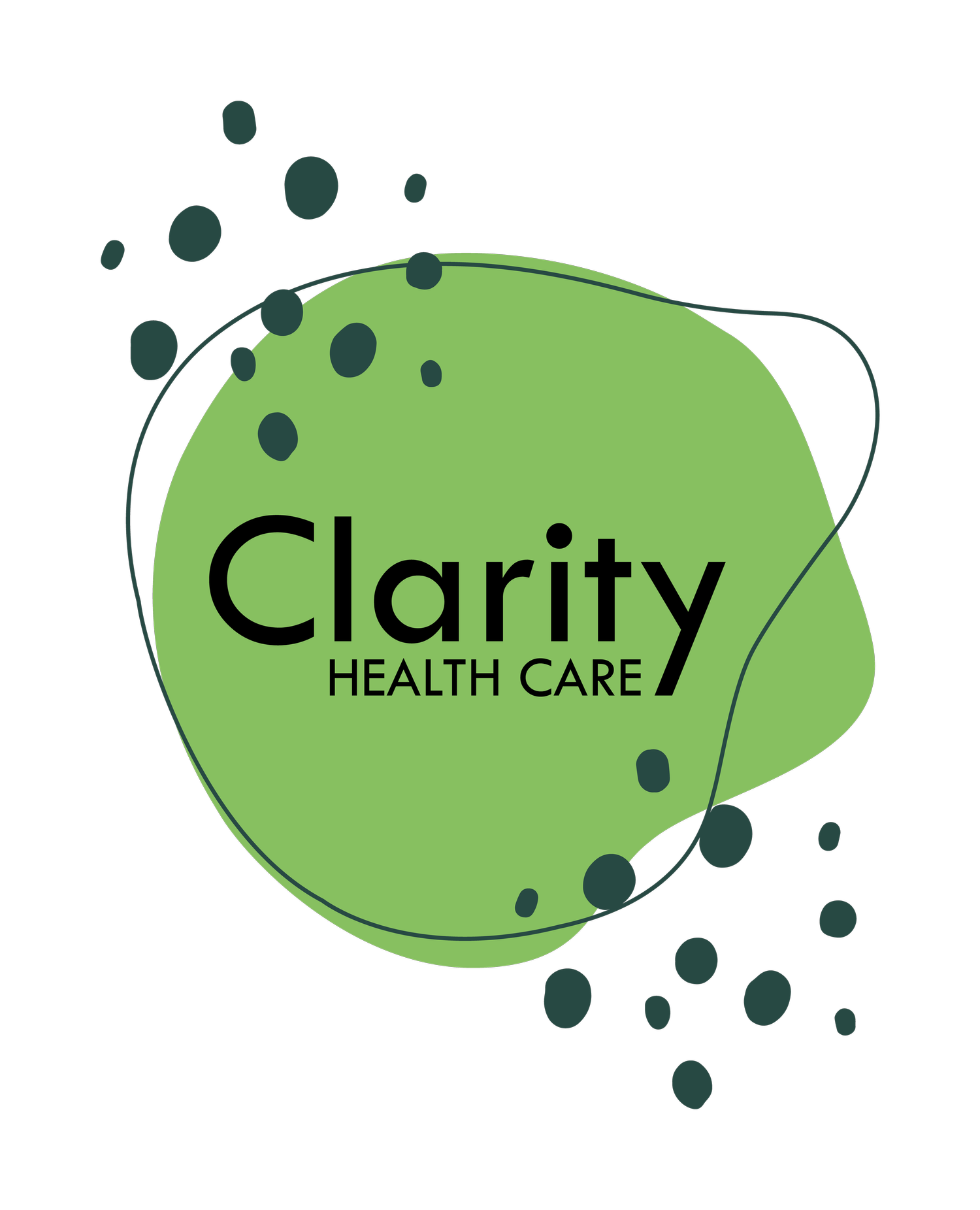Recognising Early Warning Signs of Mental Illnesses
Written by Aimee Oliveri (Clinical Psychologist & Mental Health Content Creator) in Collaboration with Clarity Health Care
Mental health is a critical aspect of our overall well-being. Just like we maintain our physical health, it's equally important to recognise and address initial signs of mental illness. These signs can often be subtle and that's why awareness is key. Often, we sense that "something isn't right" with our thoughts, emotions, or behaviour, well before a mental illness fully manifests. Intervening at this point can make all the difference in prognosis and recovery. The key lies in understanding these signs and knowing how to intervene at this early stage.
What Are Early Warning Signs?
Early warning signs of mental illnesses are the subtle changes in thoughts, feelings, behaviours, and physical wellbeing that may indicate the onset of a mental health condition. It's essential to remember that these signs can vary from person to person, and not everyone will experience the same symptoms. Here are some common early warning signs to look out for:
Subtle Changes in Mood:
- Persistent Sadness: Feeling down or hopeless for an extended period.
- Elevated Mood: Feelings of extreme happiness, confidence, euphoria, or an overall sense of being "on top of the world."
- Irritability: Increased irritability, anger, or mood swings.
- Loss of Interest: Losing interest in activities you used to enjoy.
- Feeling disconnected: A vague feeling of being disconnected from oneself or one’s surroundings.
- Changes to self-esteem: Feeling not good enough, worthless, questioning your abilities, or conversely, experiencing an inflated self-esteem
Changes in Thinking:
- Excessive Worry: Constant worrying about everyday problems.
- Difficulty with Thinking: Problems with concentration, memory, speech, or making decisions.
- Suicidal Thoughts: Thoughts of not wanting to continue or wanting to end your life
Behavioural Changes:
- Social Withdrawal: Avoiding social interactions or isolating oneself.
- Appetite and Sleep Changes: Significant changes in eating or sleeping patterns.
- Substance Use: Increased or new use of alcohol or drugs.
- Maladaptive Coping:
o Increased substance use or cravings
o Procrastination
o Gambling and other addictive behaviours
o Checking or cleaning
o Numbing behaviours such as social media use or television
o Self-harm
o Risk-taking
- Decline in functioning: Increased absenteeism, worsening performance, or difficulties in relationships with peers and co-workers.
Physical Symptoms:
- Unexplained Aches and Pains: Frequent physical complaints without a medical cause.
- Changes in Energy Levels: Feeling overly tired or restless.
- Weight Fluctuations: Unusual weight gain or loss.
- Increased sensitivity: Heightened sensitivity to sights, sounds, smells or touch.
Benefits of Early Recognition:
Recognising these early warning signs is crucial for several reasons:
1. Timely Intervention and Improved Prognosis: Identifying mental health concerns early allows for prompt intervention and treatment, which can improve outcomes, like a reduced duration of suffering and higher likelihood of recovery.
2. Reducing Stigma: Early awareness helps break down the stigma associated with mental health issues. It encourages open conversations and seeking help without shame.
3. Preventing Crisis: Addressing mental health concerns at an early stage can prevent a crisis or the condition from worsening.
4. Enhancing Quality of Life: Early intervention can lead to a better quality of life and overall well-being.
5. Lower Healthcare Costs: Early intervention is often less costly than addressing more advanced or chronic mental health conditions, which may require more intensive treatments.
What to Do if You Notice These Signs:
If you or someone you know is displaying these early warning signs of mental illness, taking action is essential. Here are some steps to consider:
1. Seek Professional Help:
- The most important thing you can do is seek professional help.
- A mental health professional can provide a thorough evaluation and develop a tailored treatment plan.
- For further guidance with this step, see our blog post on ‘Finding a Clinician: Your Guide to Finding Quality Mental Health Care’.
2. Reach out:
- Share your concerns with a trusted friend or family member who can offer emotional support and understanding.
3. Educate Yourself:
- Learn about the specific mental health condition you are experiencing or mental illness in general.
- Explore local mental health resources and support groups in your area.
- Knowledge can empower you and help you understand what to expect.
4. Practice Self-Care:
- Prioritise self-care activities like regular exercise, a balanced diet, adequate sleep, and stress management to support your overall well-being.
5. Stay Connected:
- Maintain social connections and engage in activities that bring you joy, even when you're not feeling your best.
- It may not provide immediate relief, but it can serve as a preventive measure against further deterioration.
6. Set Realistic Goals:
- Break tasks into manageable steps
- Set achievable goals
- Celebrate small successes.
7. Avoid Self-Medication:
- Refrain from self-medicating with drugs or alcohol, as this can exacerbate mental health issues.
8. Be Patient with Yourself:
- Understand that recovery and symptom management may take time, and it's normal to have ups and downs along the way.
Remember:
Early recognition of the warning signs of mental illnesses is a crucial step toward promoting mental well-being and improving prognosis and outcomes. These signs are not always easy to spot, but early awareness and support makes all the difference. Remember that seeking help and taking steps to address your mental health is a sign of strength, and it can lead to a healthier and more fulfilling life.
If you or someone you know is experiencing these early warning signs, contact Clarity Health Care here for guidance on booking an appointment with one of our experienced clinical psychologists or psychologists.
The key interventions our Psychologists and Clinical Psychologists are trained in include:
Eye Movement Desensitisation & Reprocessing (EMDR Therapy)
Acceptance Commitment Therapy (ACT)
Schema Therapy
Motivational Interviewing
Family and Couples Therapy
In case of emergencies, please call 000 for immediate assistance or go to your nearest hospital emergency department.
